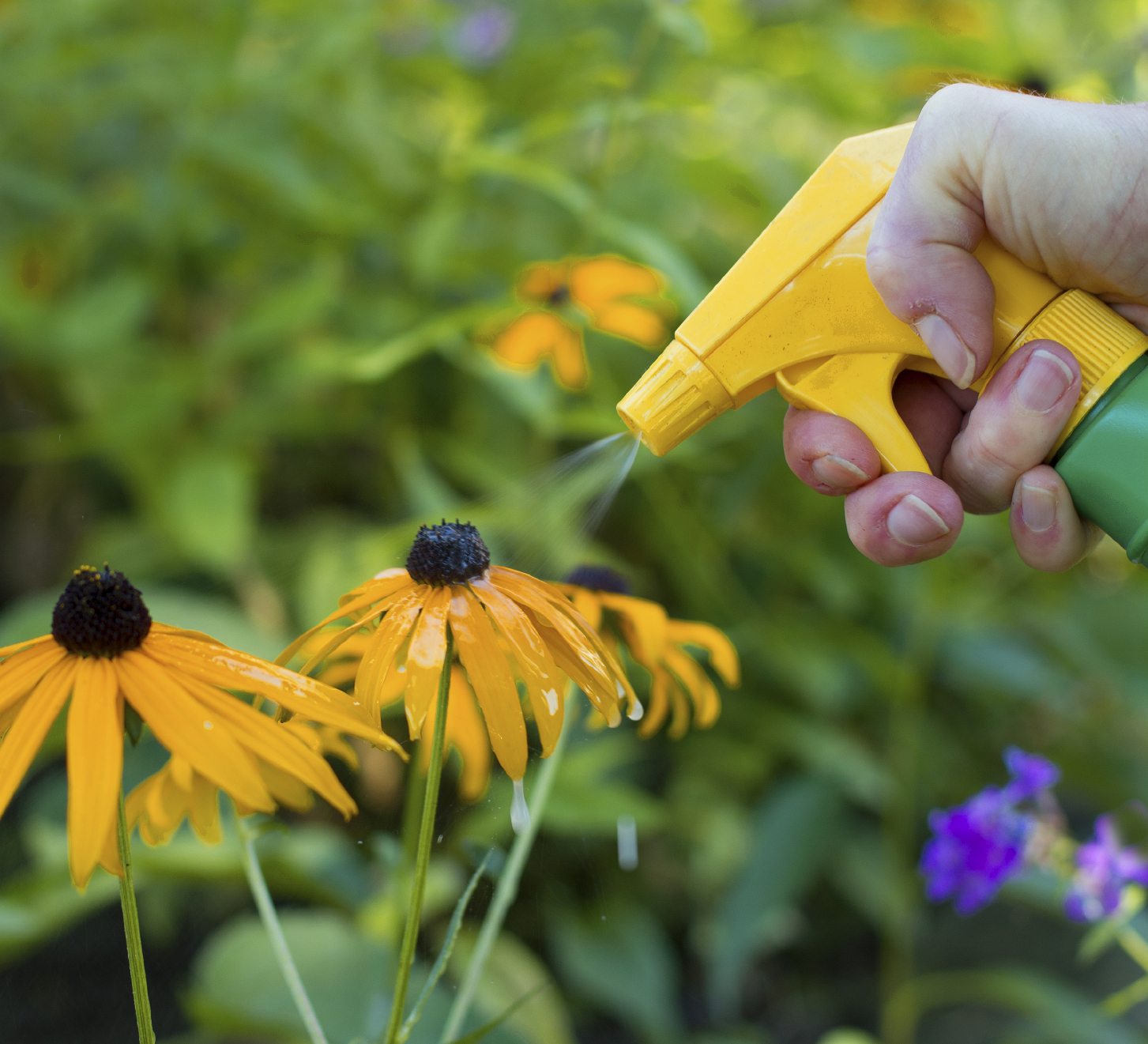Non-Organic Gardening Issues


When it comes to gardening, there is always the underlying question of which is better -- organic or non-organic gardening methods. Of course, in my opinion, I prefer the organic gardening approach; however, each form of gardening method has its good points and bad. Therefore, "Thou shall not judge." Remember, to each his/her own. As each gardener and gardening style is different, you must not worry what others think or say but what you, the gardener, feel is best for you and your garden.
Common Non-Organic Gardening Issues
To put it bluntly, the only real difference between these two gardening methods lies in how fertilizer, pest control, and mulch are applied in the garden. Other than that, they're basically the same.
Fertilizer
With fertilizers, organic approaches seem to fare better with fruits and vegetables, not only because it provides the best flavor but for the simple fact that people (and wildlife) are consuming them, making organic a healthier option. On the other hand, non-organic methods can provide the ornamental garden with more optimal growth as these synthetic fertilizers can offer the strongest concentration of nutrients in the quickest amount of time. Non-organic fertilizers are often sprayed directly onto plants or placed within the ground. Unfortunately, some of these fertilizers can threaten wildlife.
Pesticide
Did you know that over 40 percent of the most commonly used lawn and garden pesticides are actually banned in other countries; yet, nearly ninety million pounds (forty-one thousand tons) of these same pesticides are applied to lawns and gardens each year in the United States. In fact, these non-organic pesticides are used more often by home gardeners than anyone else. Organic approaches to pesticides include selecting pest-resistant plants, the use of netting, or simply picking insects off by hand, which unfortunately can be quite time-consuming. Allowing beneficial insects in the garden also aids in alleviating pest problems. However, non-organic methods are still considered the quickest and easiest alternative for controlling insects. Nonetheless, there are downsides too. Using chemicals can be expensive and unhealthy for the environment, not to mention harmful to beneficial bugs and wildlife, as well as pets.
Mulch
Even with regards to mulch, again, the question of which is better exists. Once again, this is left up to the individual gardener -- dependent on maintenance issues, overall purpose, and personal preference. Organic mulch is preferable to those who enjoy getting their hands dirty. This type of mulch consists of pine needles, wood chips, shredded bark, or leaves, all of which eventually decompose into the soil, making it better and easier to work with. Organic mulch allows water to absorb easily into the ground. If you use recycled organic mulch from your own landscape, such as pine needles and shredded leaves, it can also be less expensive and more environmentally friendly. The downside, however, is that this mulch must be replaced each year or two as it decomposes. Some forms of organic mulch also lose their luster, making them appear dull after a while. Of course, color is another problem in that there is less to choose from. Then there are the non-organic forms of mulch, like rocks, plastic, pebbles, or shredded rubber from recycled tires. Non-organic mulch is a more permanent solution, requiring no replacement. Non-organic mulch, like stones, can enhance certain garden styles and create unique interest. Stones, rocks, and pebbles are also available in numerous colors that will complement nearly any decorating style. Rubber mulch not only shares this advantage but also has the additional benefit of being permeable to water, unattractive to insects, and excellent for children's areas as it's softer and cushions falls. Yet, in spite of this, there are also downsides to using non-organic mulch. Stones and rocks create additional heat around garden plants, requiring more watering. Unless you include plastic or meshed landscape fabric, weeds will be another factor to contend with, upgrading maintenance time in the garden as well. Non-organic gardening methods may be easier. They may be quicker. They may offer more options and lots of conveniences. However, these non-organic approaches are not always good for our environment or us. The choice therein still lies with the individual gardener and what he/she feels is best for them. No one is here to judge; we're only here to garden.
Sign up for the Gardening Know How newsletter today and receive a free copy of our e-book "How to Grow Delicious Tomatoes".

Heather Rhoades founded Gardening Know How in 2007. She holds degrees from Cleveland State University and Northern Kentucky University. She is an avid gardener with a passion for community, and is a recipient of the Master Gardeners of Ohio Lifetime Achievement Award.